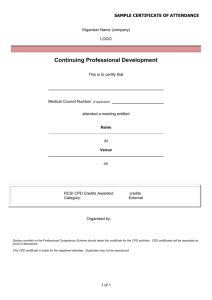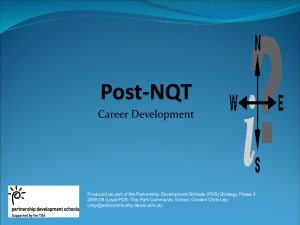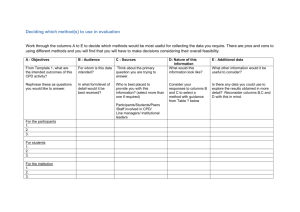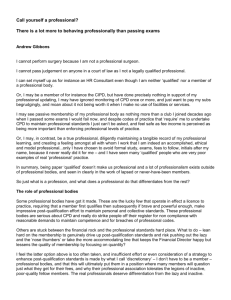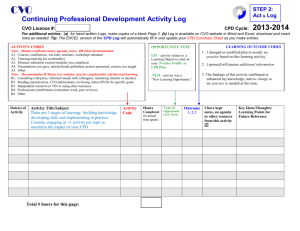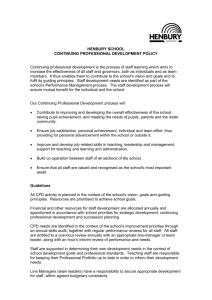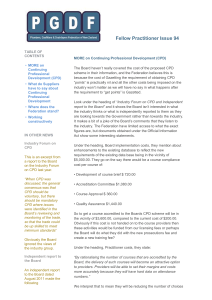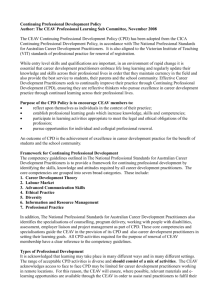Jan 14 blog - Andrew Gibbons
advertisement
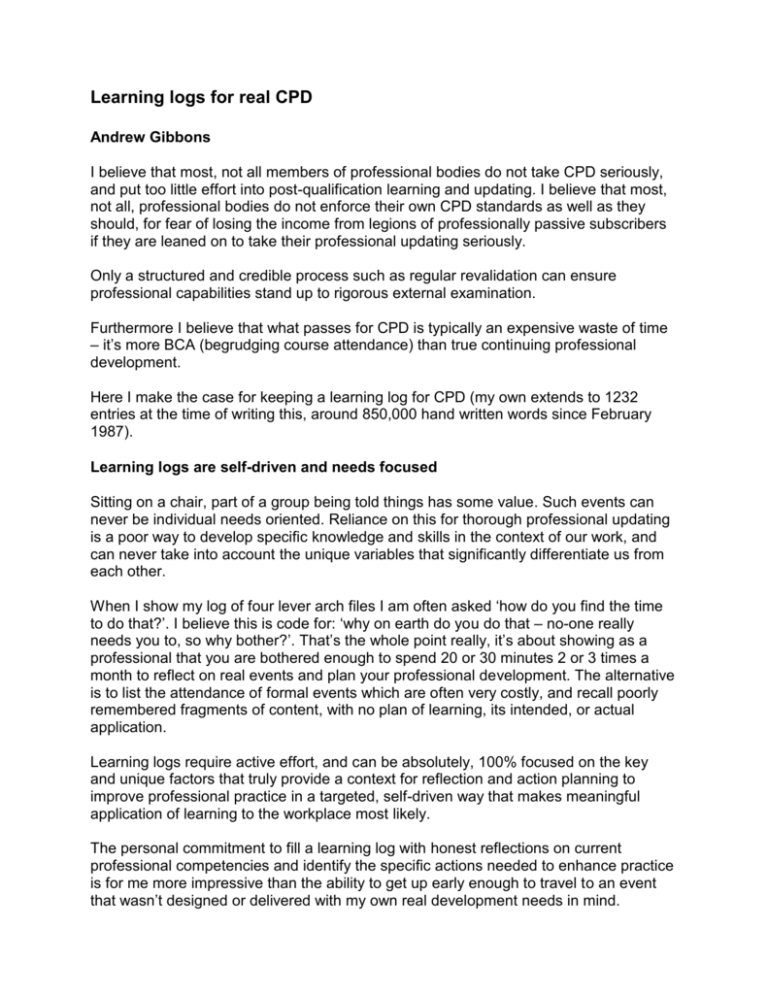
Learning logs for real CPD Andrew Gibbons I believe that most, not all members of professional bodies do not take CPD seriously, and put too little effort into post-qualification learning and updating. I believe that most, not all, professional bodies do not enforce their own CPD standards as well as they should, for fear of losing the income from legions of professionally passive subscribers if they are leaned on to take their professional updating seriously. Only a structured and credible process such as regular revalidation can ensure professional capabilities stand up to rigorous external examination. Furthermore I believe that what passes for CPD is typically an expensive waste of time – it’s more BCA (begrudging course attendance) than true continuing professional development. Here I make the case for keeping a learning log for CPD (my own extends to 1232 entries at the time of writing this, around 850,000 hand written words since February 1987). Learning logs are self-driven and needs focused Sitting on a chair, part of a group being told things has some value. Such events can never be individual needs oriented. Reliance on this for thorough professional updating is a poor way to develop specific knowledge and skills in the context of our work, and can never take into account the unique variables that significantly differentiate us from each other. When I show my log of four lever arch files I am often asked ‘how do you find the time to do that?’. I believe this is code for: ‘why on earth do you do that – no-one really needs you to, so why bother?’. That’s the whole point really, it’s about showing as a professional that you are bothered enough to spend 20 or 30 minutes 2 or 3 times a month to reflect on real events and plan your professional development. The alternative is to list the attendance of formal events which are often very costly, and recall poorly remembered fragments of content, with no plan of learning, its intended, or actual application. Learning logs require active effort, and can be absolutely, 100% focused on the key and unique factors that truly provide a context for reflection and action planning to improve professional practice in a targeted, self-driven way that makes meaningful application of learning to the workplace most likely. The personal commitment to fill a learning log with honest reflections on current professional competencies and identify the specific actions needed to enhance practice is for me more impressive than the ability to get up early enough to travel to an event that wasn’t designed or delivered with my own real development needs in mind. Learning logs give tangible, flexible, virtually costless evidence of CPD A day’s professional updating, will cost of hundreds of pounds, plus travel, and a day away from work...what did you learn, and how will this prompt an attributable impact on your professional practice? Even the best such days struggle to meet the unique needs of an individual, a truly motivated active professional will have this in mind throughout – the trouble is, this is a rare breed...too many are bored, and spend the time texting what they think is secretly, coming away early with little in the way of new learning. Oh and please don’t get me started on ‘pre-approved CPD training events’. Turn up, keep a chair warm, leave early and get your points, well is that really enough? Learning logs provide a tangible outcome that can be seen, read, stored, discussed and debated. This is in contrast to the often abstracted, unclear, and then in days forgotten thoughts of which there is no record. A learning log entry can focus on that specific difficult meeting; the article or You Tube video that had a message worth reflecting upon, or for instance the outcomes of an annual performance review. Thus the learning log can be used to explore and store thoughts on whatever is helpful to improving professional abilities, and can be written up now, or tomorrow in half an hour, not in weeks or months when a more formal, far less reality-driven and costly course can be sourced. In addition, learning logs have no cost other than time – and often the best reflective opportunities are out of work hours. One day of non-needs focused training can buy a lot of A4 sheets of paper and the ink needed to explore relevant and important issues that really do impact on professional competence. In conclusion I have a real concern that most, not all professional bodies have no effective tangible measure of quality control of members’ competencies beyond initial acceptance. I am very deeply concerned that vast numbers of so called professionals are in effect passive members of a club with whom they have struck a deal – ‘if I pay my subs, you leave me be and don’t expect me to comply with all that CPD rubbish’. Keeping a learning log seems a perfectly reasonable thing to expect of a true professional who takes real responsibility for their own development and learning. andrew@andrewgibbons.co.uk 07904 201 474 www.andrewgibbons.co.uk
